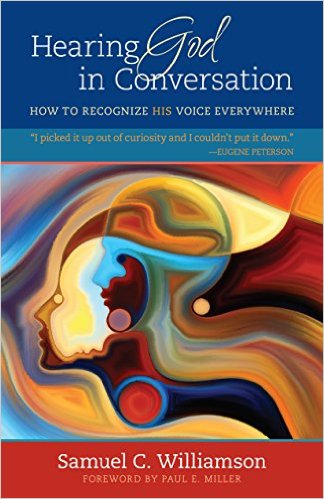|
Willpower
.
by Sam Williamson
In 1975, three friends and I participated in a
200-mile bicycle marathon on Belle Isle, an
island-park owned by the city of Detroit. The
course was a five-mile circuit which you circled
forty times. Every time you passed the “finish
line,” someone stamped your plastic vest. The
race lasted twenty-four hours and the goal was
to get forty stamps, representing 200 miles.
My friends and I were foolish high school boys
(pardon my redundancy) and not one of us trained
for the event. I had to borrow an “English
racer” (with its tortuously narrow racing seat)
because I didn’t even own a bike. Nevertheless,
we decided to ride forty-one circuits
(sort of a biker’s-dozen of 205 miles) just to
say we did.
The race began at noon on a Saturday. We rode
at a reasonable speed, and by midnight, we had
biked 180 miles. We were ahead of schedule, a
bit tired, and didn’t want to finish at 1:30 in
the morning, so we decided to take a
sleep-break.
The ground was wet and we hadn’t brought
sleeping bags, so we found four plastic trash
bags and curled up fetal-style for a nap. (Did I
mention we were foolish high school boys?)
When we awoke, our legs had stiffened into
baked pretzels; we could barely straighten them
much less pedal a bike. One of us decided 180
miles was good enough and quit; two of us
wobbled our way the final 20 miles; and one of
us went the extra lap for 205 miles.
Later, the “biker’s-dozen” boy casually
critiqued our failure by observing that we “just
didn’t have the willpower” that he has.
The Insidious Self-praise of
Willpower
The idea of willpower was created by
the Victorians. The Industrial Revolution made
them believe they could control their
environment, so: Hey, if we can manage
nature through horsepower, let’s rule
ourselves through willpower. They
worshipped their power over the self:
Will-power is
self-mastery. It is kingship over all life. At
the center of your being sits yourself. Your
seat ought to be a throne. If you are not in
control … you are not the king you should
be. (James Russell Miller, 1911)
The strength of
life is measured by the strength of your will.
(Henry Van Dyke, 1908)
English-speakers survived for centuries without
“willpower” in their vocabulary. According to The
Oxford English Dictionary, the first time
the word was ever penned was in 1874. Its use
immediately proliferated as thinkers used it to
praise their own strength.
Real-power
Unfortunately, many Christian adopt this
godless Victorian idea. We resist sexual
temptation (or take our daily prayer time)
through our willpower and self-discipline. But
that leaves other believers feeling helpless
because they don’t have our pedal-power.
Any goodness that draws attention to our
own strengths is a hindrance to leading
people to God. If our holiness does not draw
others to Christ’s miraculous life in us, we are
worshiping a false god. We have put ourselves on
the throne.
God calls us to doubt natural strengths not
glory in them. Eternal life is not merely a gift
of God, but the life of God himself in
us. Only in him can we do all things, because he
can do all things, and he lives in us.
We need God-power not willpower. Our natural
willpower decreases as God’s life in us
increases. So, when others see us, they can
hope. Because God can live in them too.
I finished, (just barely) that bike marathon in
1975. But I didn’t ride a bike again for ten
years. I simply didn’t have the willpower.
Besides, my butt still hurt.
Sam
Sam Williamson has published
numerous articles and has written two books.
He
has a blog site, www.beliefsoftheheart.com,
and can be reached at
Sam@BeliefsoftheHeart.com.
Praise for Hearing God in
Conversation 
“In this book, Sam
Williamson shares his deep spiritual
wisdom with a kind of disarming humility
that will help readers hear God’s
extraordinary voice as an ordinary life
experience.” – Jean Barbara, president of
Sword of the Spirit
“I’ve just finished reading Sam
Williamson’s compelling book on hearing
God. Sam treats this crucial subject
with wisdom, humor, and deep conviction.
His highly readable personal stories and
spiritual insights will surely inspire
many to pursue with greater confidence the
life-changing experience of daily
conversation with God. Hearing God in
Conversation is a helpful and
well-balanced spiritual guide which I
would not hesitate to recommend to men and
women from all the Christian traditions
who hunger to walk more closely with God.”
– John Keating, Servants of the Word elder
It is a tragedy that so many Christians
believe that God does not speak to them.
This book is one of the best I’ve seen at
equipping ordinary people to listen to God
in everyday life. I especially loved the
description of how to “brainstorm with
God” – what a wonderful way to demystify
the process of seeking guidance.
Most importantly, the author puts the
emphasis where it should be: on a
biblically grounded, conversational
relationship with God in which we let God
take the lead. If you’ve ever
secretly longed for your friendship with
God to be much more interactive than it is
and you are finally ready to do something
about it, read this book. – Thomas E.
Bergler, Professor of Ministry and
Missions
Hearing
God in Conversation: How to Recognize His
Voice Everywhere, by Samuel C.
Williamson, published by Kregel
Publications, 2016, available from Amazon
Top photo of cycling
racers by (c) Tim at Bigstock.com |

